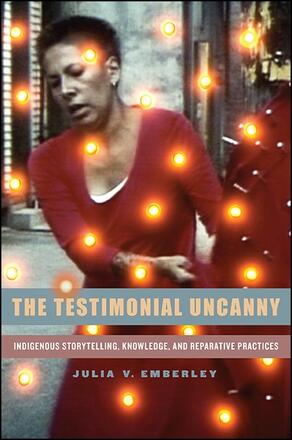
The Testimonial Uncanny
Indigenous Storytelling, Knowledge, and Reparative Practices
Alternative formats available from:
Examines how colonial and postcolonial violence is understood and conceptualized through Indigenous storytelling.
Description
Through the study of Indigenous literary and artistic practices from Canada, Australia, New Zealand, and the United States, Julia V. Emberley examines the ways Indigenous storytelling discloses and repairs the traumatic impact of social violence in settler colonial nations. She focuses on Indigenous storytelling in a range of cultural practices, including novels, plays, performances, media reports, Internet museum exhibits, and graphic novels. In response to historical trauma such as that experienced at Indian residential schools, as well as present-day violence against Indigenous bodies and land, Indigenous storytellers make use of Indigenous spirituality and the sacred to inform an ethics of hospitality. They provide uncanny configurations of political and social kinships between people, between the past and the present, and between the animate and inanimate. This book introduces readers to cultural practices and theoretical texts concerned with bringing Indigenous epistemologies to the discussion of trauma and colonial violence.
Julia V. Emberley is Professor of English at Western University in London, Ontario, and the author of several books, including Defamiliarizing the Aboriginal: Cultural Practices and Decolonization in Canada.